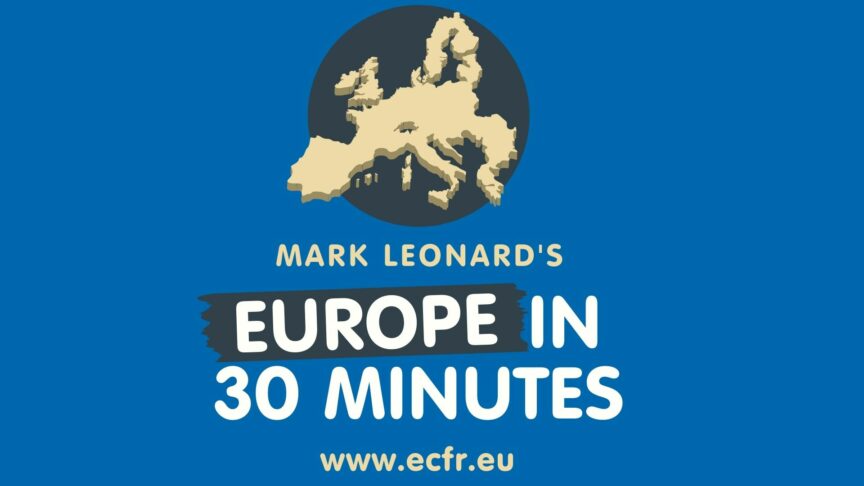
Europe is shifting: EU election results could divide Europe
In this new episode, Vessela Tcherneva welcomes head of ECFR offices to discuss national implications of the EU elections
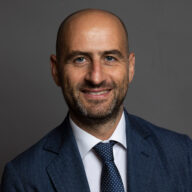
Head, ECFR Rome
Senior Policy Fellow
Geopolitics and International Relations; MENA Region; Libya; EU-MENA relations; Italian-Libyan relations; Italian foreign policy
Italian, English, basic French
Arturo Varvelli is the Head of the Rome Office and a Senior Policy Fellow for the European Council on Foreign Relations. His research interests include geopolitics and international affairs, international relations of the MENA region, EU-MENA relations, Italian foreign policy towards the MENA, and transnational terrorism movements affecting the area. His main focus is Libya, a country he has extensively worked on, unpacking its domestic and foreign politics, and Italian-Libyan relations in particular.
Previously, Varvelli worked as the Co-Head of the MENA Center and Head of the Terrorism Programme at the Italian Institute for International Political Studies (ISPI). In ISPI, he provided scientific coordination of the “Rome MED – Mediterranean Dialogues” organized by ISPI and the Italian Ministry of Foreign Affairs. Furthermore, he was also a lecturer of History and Institutions of the Middle East at IULM University in Milan and a Visiting Fellow at the European Foundation for Democracy (EFD).
Varvelli holds a PhD in International History from the University of Milan, and a post-PhD from the CRT Foundation of Turin. He also took part in research projects funded by the Italian Chamber of Representatives and Senate, the Italian Ministry of Foreign Affairs and the European Parliament and Commission. In 2015, he was chosen by the US State Department to take part in the International Visitor Leadership Program.
He has extensively published on Libya. His first book, “Italy and the rise of Ghaddafi” (“L’Italia e l’ascesa di Gheddafi”, 2009) focused on Italian-Libyan relations, while later books, published in collaboration with The Atlantic Council and Brookings Institutions, rather delved into Libya’s and the MENA’s foreign projections. In 2018, he took part in a Brooking Institution’s working group on the Libyan crisis.
He is also a regular speaker and commentator on Libyan and MENA issues in the main Italian media. His comments have also appeared in international newspapers such as The New York Times, The Washington Post and The Economist.

In this new episode, Vessela Tcherneva welcomes head of ECFR offices to discuss national implications of the EU elections
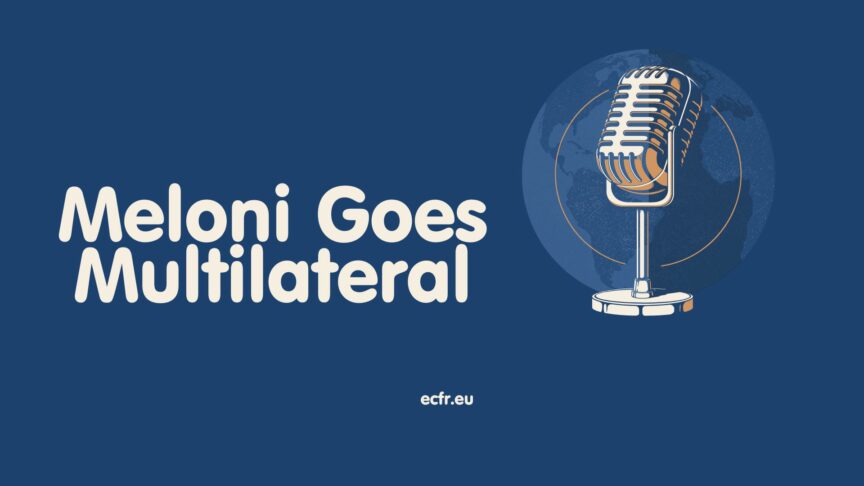
In the first big multilateral test for prime minister Giorgia Meloni, this mini-series will explore the four main priorities of Italy’s 2024 G7 presidency: Ukraine, AI, infrastructure, and Africa
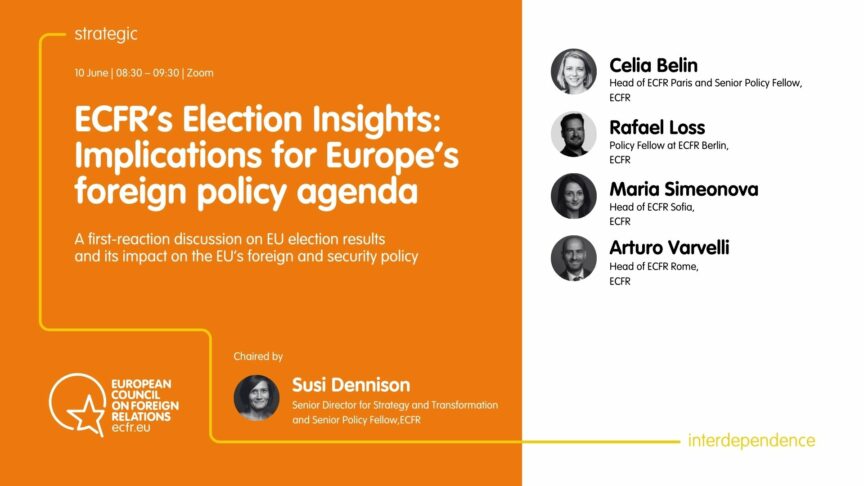
This webinar will provide a snapshot analysis of election results and their implications for Europe’s foreign policy and security agenda. Featuring perspectives from selected ECFR…

Mark Leonard welcomes Célia Belin, Piotr Buras, Jana Puglierin, Maria Simeonova, José Ignacio Torreblanca, and Arturo Varvelli to discuss the European Parliament elections and the future of European politics
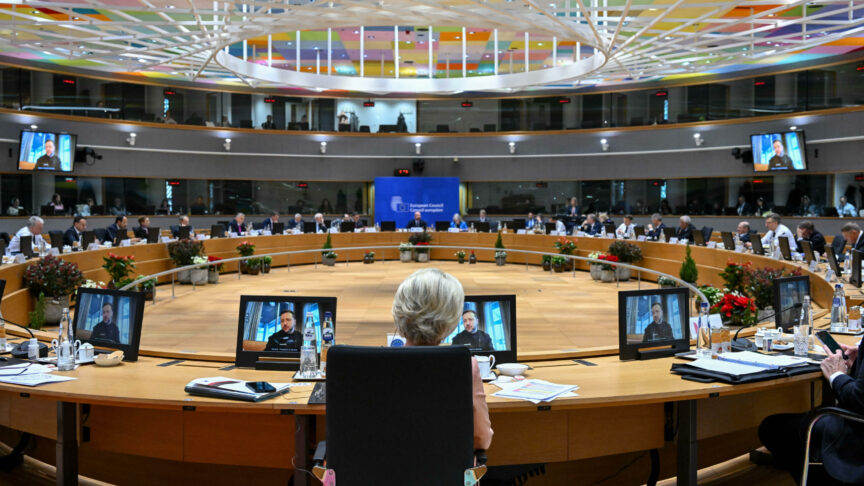
The Orban saga highlights the need for more effective decision-making within the EU – especially now that enlargement is firmly back on the agenda
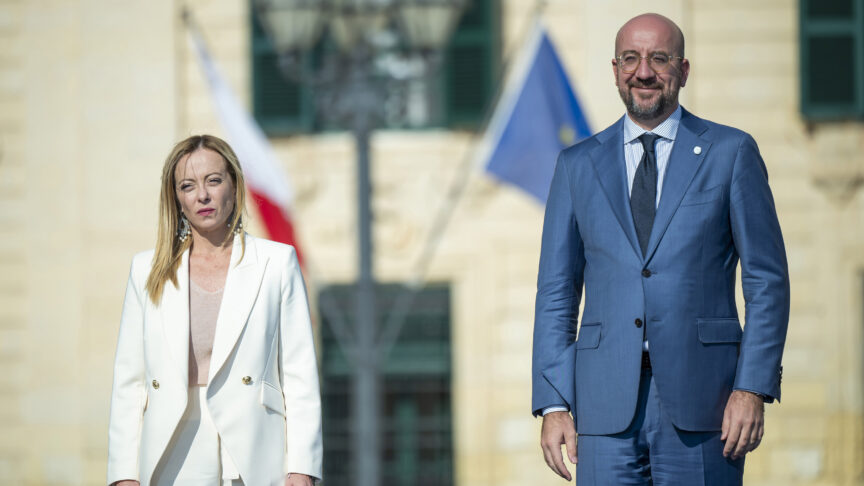
Giorgia Meloni’s foreign policy is a hit across the Atlantic – but things do not seem to be going quite as well in Europe
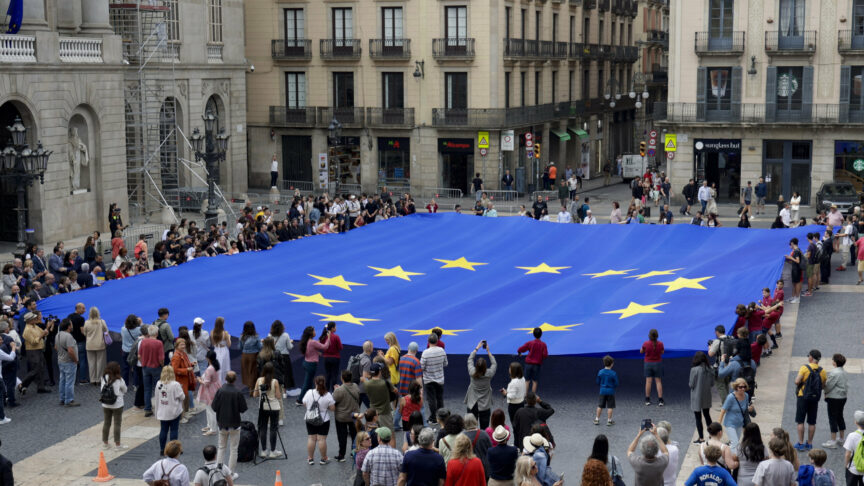
Mark Leonard welcomes the heads of ECFR’s national offices to discuss key players outside the traditional halls of European power
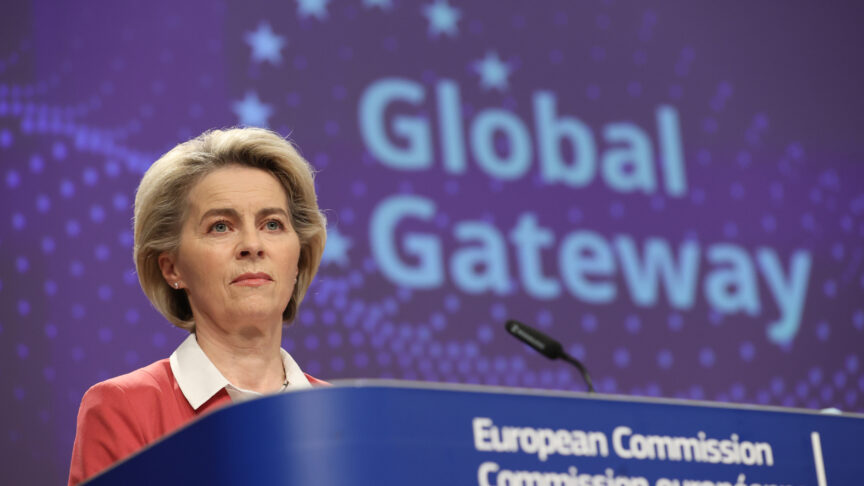
The EU should invest more Global Gateway funding in the southern neighbourhood, helping it achieve strategic nearshoring, clean energy, and regional connectivity goals
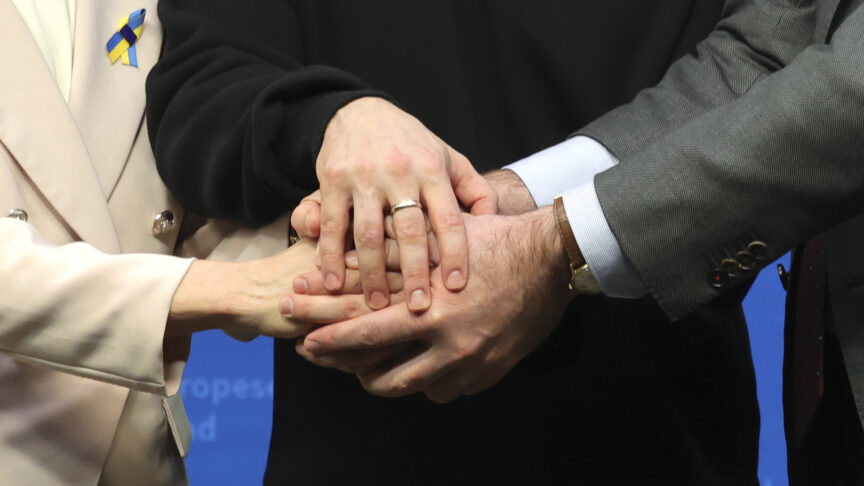
Nell’attuale contesto internazionale, le relazioni dell’Europa con le potenze globali stanno cambiando rapidamente, e la loro evoluzione rappresenta un elemento di analisi ineludibile nel delineare la strategia di politica estera dell’UE
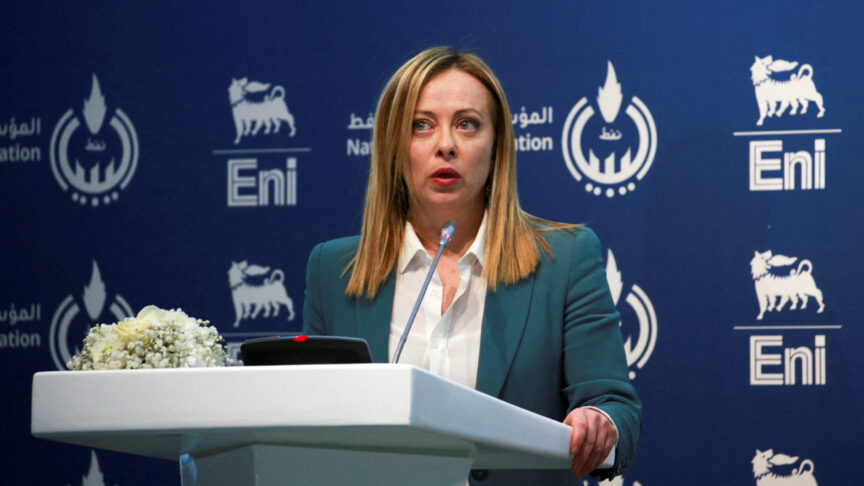
Italy has revived its ambitions to become a gas hub for Europe. But the plan is destined for the same pitfalls as past plans if it is not part of a broader European strategy

The EU should invest more Global Gateway funding in the southern neighbourhood, helping it achieve strategic nearshoring, clean energy, and regional connectivity goals
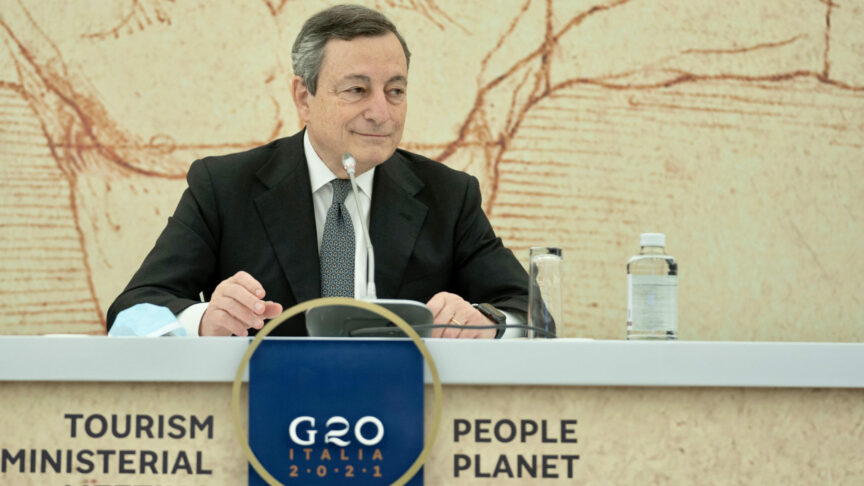
Italy has an opportunity to position itself closer to the Franco-German engine and to help construct a multilateral system in which the EU and the US are equal partners

The EU has the ambition and potential to become a sovereign digital power, but it lacks an all-encompassing strategy for the sector, in which individual governments are still the key players
Europe must improve its early warning systems, supply chain resilience, medical R&D, and cyber security and technology, to act decisively in future emergencies

The Orban saga highlights the need for more effective decision-making within the EU – especially now that enlargement is firmly back on the agenda

Giorgia Meloni’s foreign policy is a hit across the Atlantic – but things do not seem to be going quite as well in Europe

Italy has revived its ambitions to become a gas hub for Europe. But the plan is destined for the same pitfalls as past plans if it is not part of a broader European strategy
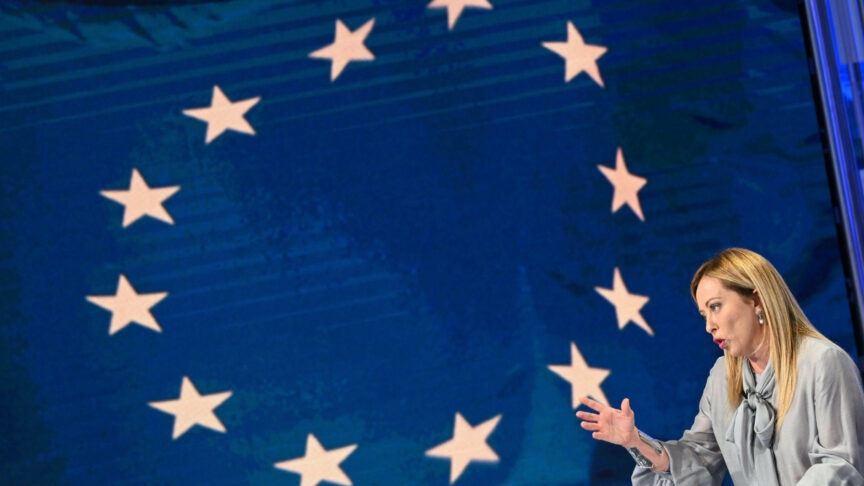
The prospect of a Brothers of Italy-led government is causing worry in capitals across Europe. But the party is having to devise a foreign policy approach within the bounds of Europeanism and transatlanticism
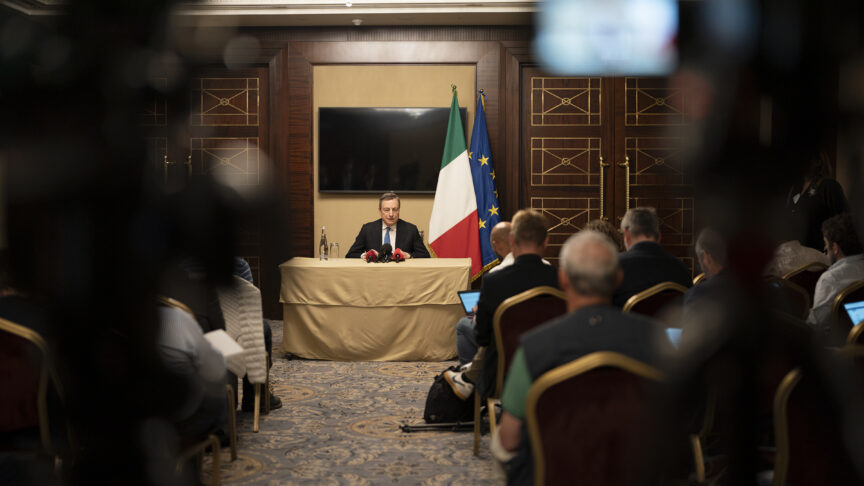
Draghi always knew that he could not depend on some members of his ruling coalition. Yet his legacy of leadership in the EU could survive his departure

Almost all EU member states are exposed to the fallout for the energy market of Western sanctions on Russia. To protect their energy security and support the green transition, they should form a new energy union
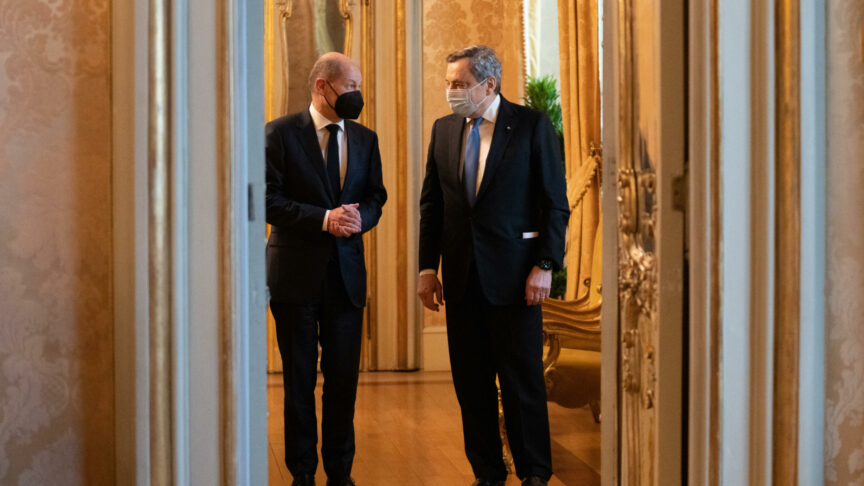
Defence industrial cooperation between Italy and Germany could boost the EU’s geopolitical credibility and capacity for technological innovation. There is no strategic autonomy without a strong defence industry
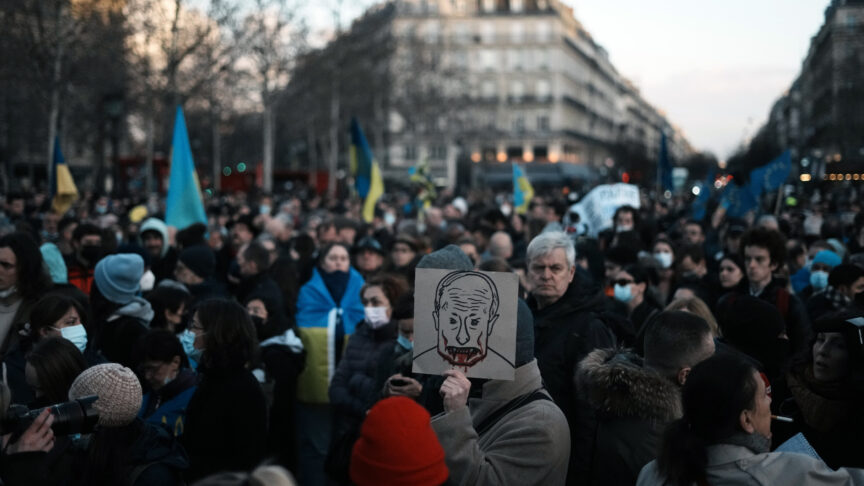
The conflict in Ukraine will change Europe forever. Experts from across ECFR’s network of offices describe the view of the war from Berlin, London, Madrid, Paris, Rome, Sofia, and Warsaw
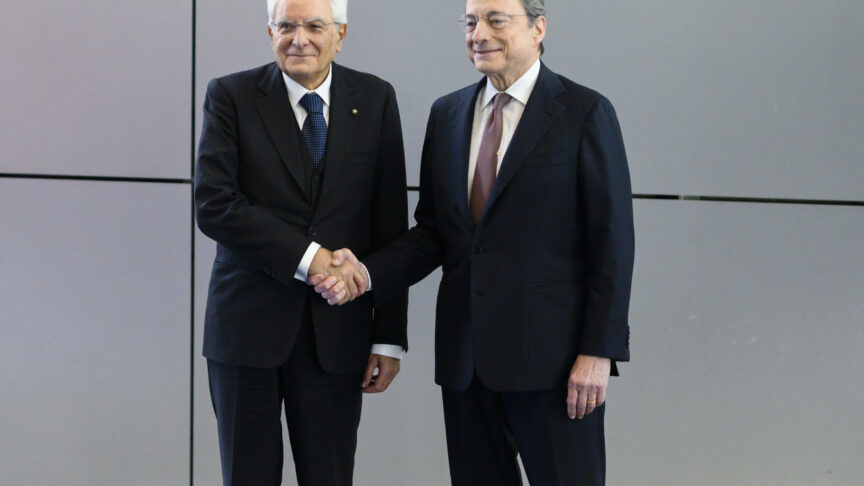
With Mario Draghi staying on as prime minister, Italy has an opportunity to help lead an economic and political recovery from the pandemic that secures Europe’s future
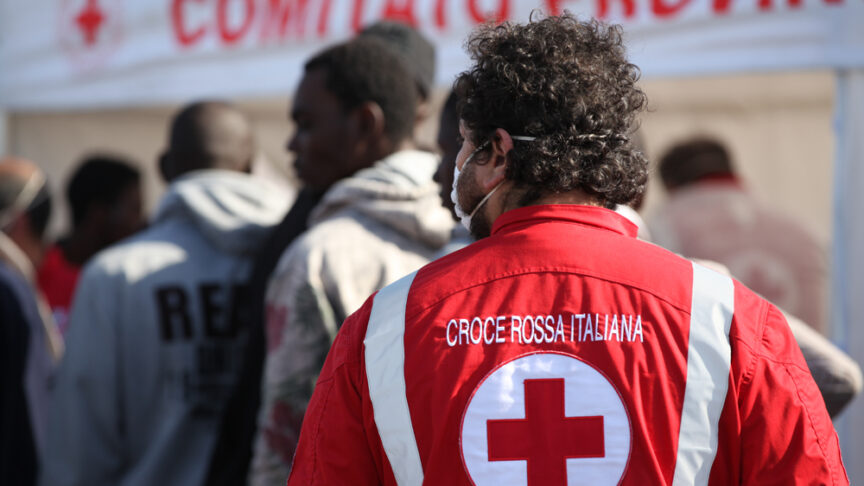
Migration is first and foremost a structural problem, yet the EU persists in responding to it as an emergency. Now is the time to change course

In this new episode, Vessela Tcherneva welcomes head of ECFR offices to discuss national implications of the EU elections

In the first big multilateral test for prime minister Giorgia Meloni, this mini-series will explore the four main priorities of Italy’s 2024 G7 presidency: Ukraine, AI, infrastructure, and Africa

Mark Leonard welcomes Célia Belin, Piotr Buras, Jana Puglierin, Maria Simeonova, José Ignacio Torreblanca, and Arturo Varvelli to discuss the European Parliament elections and the future of European politics

Mark Leonard welcomes the heads of ECFR’s national offices to discuss key players outside the traditional halls of European power

Mark Leonard and his guests discuss the implications of the new government in Rome and its foreign policy agenda, including Russia and China
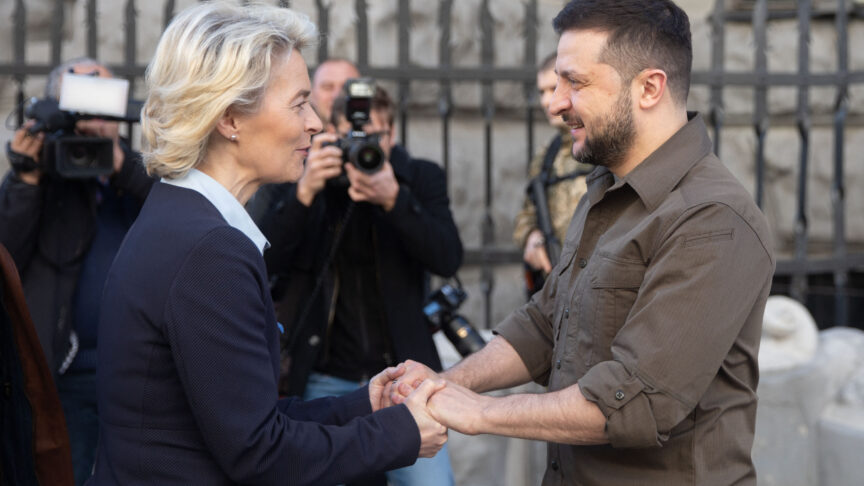
How sustainable is European unity? And what scenarios of solidarity or division can be expected in the next few months?
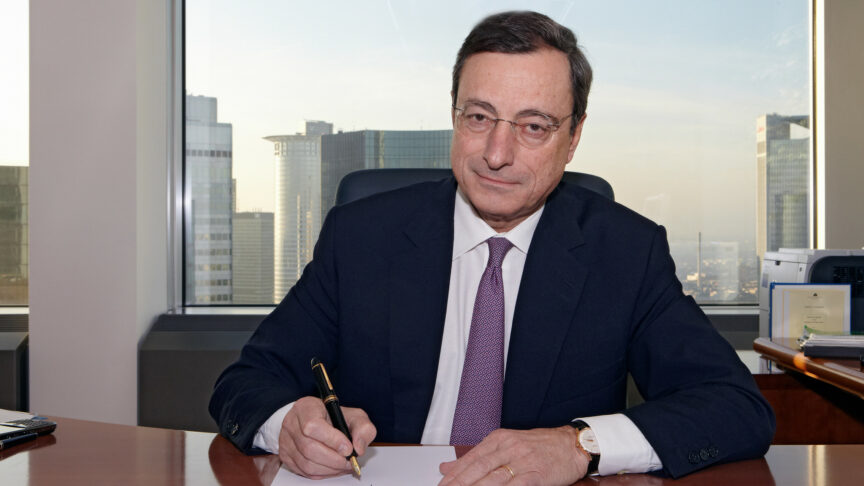
What are the first challenges Draghi will face in his country and in Brussels?
The coronavirus crisis brought about financial hardship for the European Union, and many agree that a recovery fund would be needed to overcome it. In…
The ECFR Rome office organized a virtual gathering, moderated by the Head of ECFR Rome Arturo Varvelli, to present the ECFR publication “A Gulf…
Recently declared a global pandemic, it is undeniable that the coronavirus will be a global political, social, financial and economic crisis – requiring actions that…

This webinar will provide a snapshot analysis of election results and their implications for Europe’s foreign policy and security agenda. Featuring perspectives from selected ECFR…

Nell’attuale contesto internazionale, le relazioni dell’Europa con le potenze globali stanno cambiando rapidamente, e la loro evoluzione rappresenta un elemento di analisi ineludibile nel delineare la strategia di politica estera dell’UE
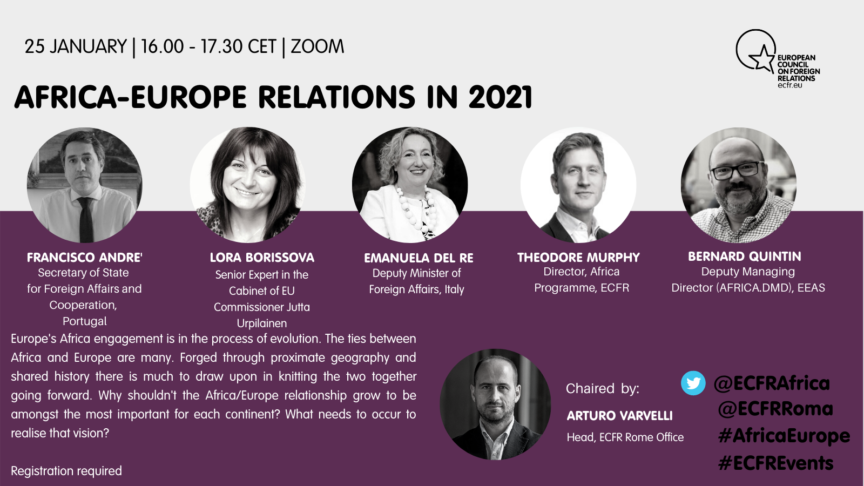
The roundtable will focus on the state of the Africa-Europe relationship with its challenges and opportunities, and the role that Southern Europe could play in the process
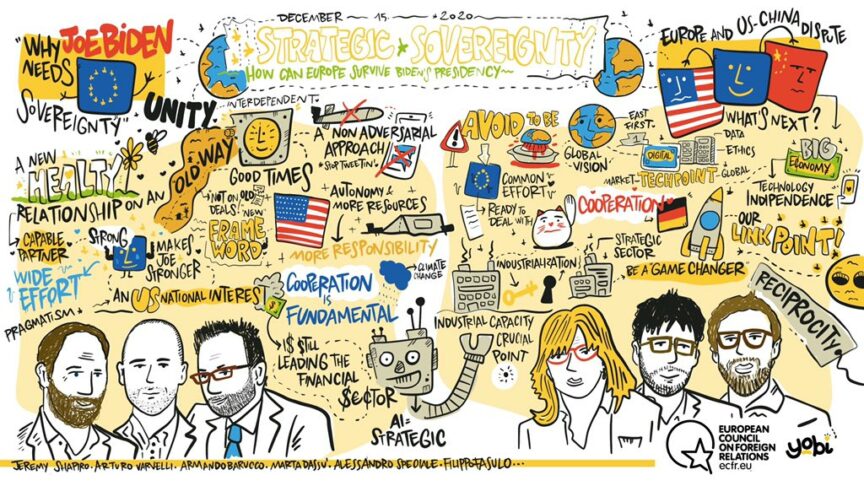
The event will convene a high-level group of Italian decision-makers and opinion shapers across government, business, media and the expert community as well as member of ECFR Council